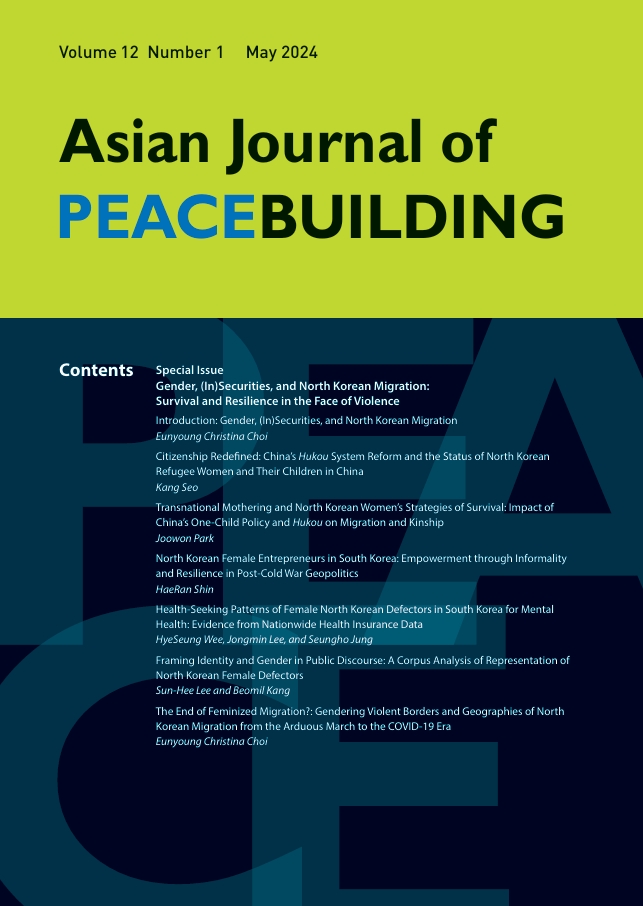This article examines and reviews the impact of China’s household registration system, hukou, as a legal and administrative basis of the legal and social personhood of North Korean refugee (NKR) women in China and their children born to Chinese fathers. It argues that China’s stringent nationality policy, along with the hukou system, left not only NKR women but also their intermarriage children with the precarious status of “nonexistence.” Recent hukou reform efforts are expected to lift legal obstacles for the children of intermarried couples to obtain hukou without penalty. This change, however, does not signal a fundamental shift toward inclusive policy. Rather, it demonstrates the Chinese government’s increased control over the bodies of these children for the purpose of mitigating the impact of demographic change.
Back Issues
Special Issue_Gender, (In)Securities, and North Korean Migration: Survival and Resilience in the Face of Violence
Citizenship Redefined: China’s Hukou System Reform and the Status of North Korean Refugee Women and Their Children in China
Kang Seo pp. 13-33 doi: 10.18588/202405.00a420
PDF Download

